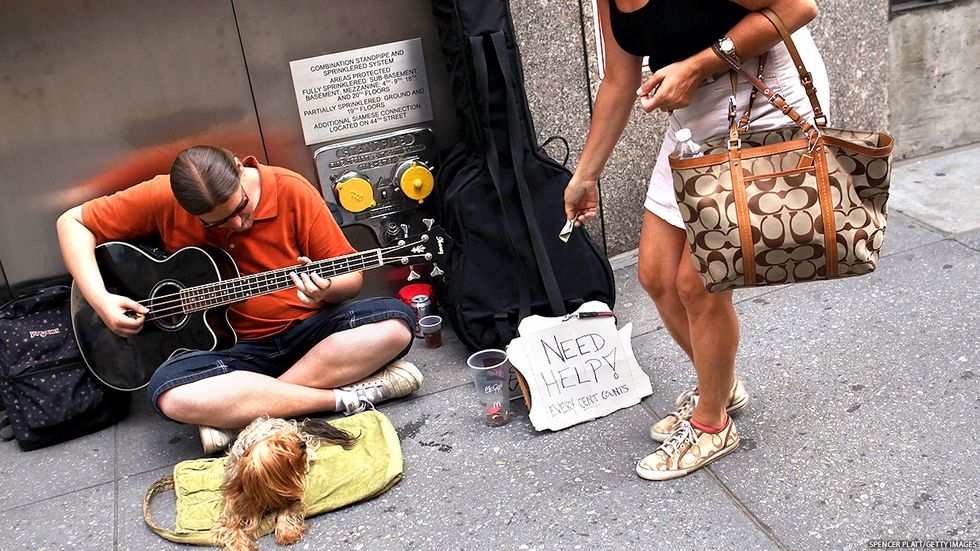Homeless LGBTQ+ youth in Connecticut often trade sex in exchange for food and shelter, but local activists say a dedicated shelter would help counter the crisis.
The practice is known as survival sex and is common among youth experiencing homelessness, and LGBTQ+ young folks are particularly at risk. One study on the subjectestimated that approximately 28 percent of these youth living on the streets engaged in survival sex, as did 10 percent of youth housed in shelters. And a study of homeless youth in NYC found that approximately 48 percent of LGBTQ+ and other young people who engage in same-sex sexual relations also practiced survival sex.
According to local advocates on the streets of Hartford, LGBTQ+ youth experiencing homelessness are easily exploitable and survival sex is commonplace, according to a report in the Hartford Courant.
“It’s really gross to say, but it is very easy to traffic queer teenagers,” Mel Cordner, founder and CEO of the LGBTQ+ youth support group Q Plus, told the Courant. “All someone with that type of intent has to do is be nice to them because they’re not used to adults being nice to them."
And advocates say that more often than not the only thing a young LGBTQ+ person experiencing homelessness has to barter for basic survival is their own body. Many times it’s the youth’s own peer urging them to engage in survival sex. In those cases, Cordner said it’s not exploitation but the reality of safety in numbers.
“If you’re a queer, homeless kid and you start talking to other queer homeless kids, often you’ll be encouraged into sex work because that’s the only way they know how to provide for each other,” Cordner said.
While there are homeless shelters for young people in Hartford, some local activists and queer young people say they are not always welcoming and affirming places for LGBTQ+ youth. Some reported physical and sexual abuse as well. The situation is particularly acute for trans and nonbinary youth, as shelters in the state are separated by a person’s sex assigned at birth.
Local experts also admitted it is difficult to get an exact measure of the problem since shelters are not allowed to ask about a person’s sexual identity. Still, there are anecdotal accounts of young homeless people believing they were turned away from shelters because they were LGBTQ+.
Cordner said a dedicated shelter for LGBTQ+ homeless youth would help.
“If we were able to have a space and a staff and a resource that was by queer folks for queer folks where no one ever had to walk through the door wondering if they’re about to get dead named or misgendered or sent back, it makes a world of difference, even if technically, on paper, the resources are very similar,” Cordner said.















































































